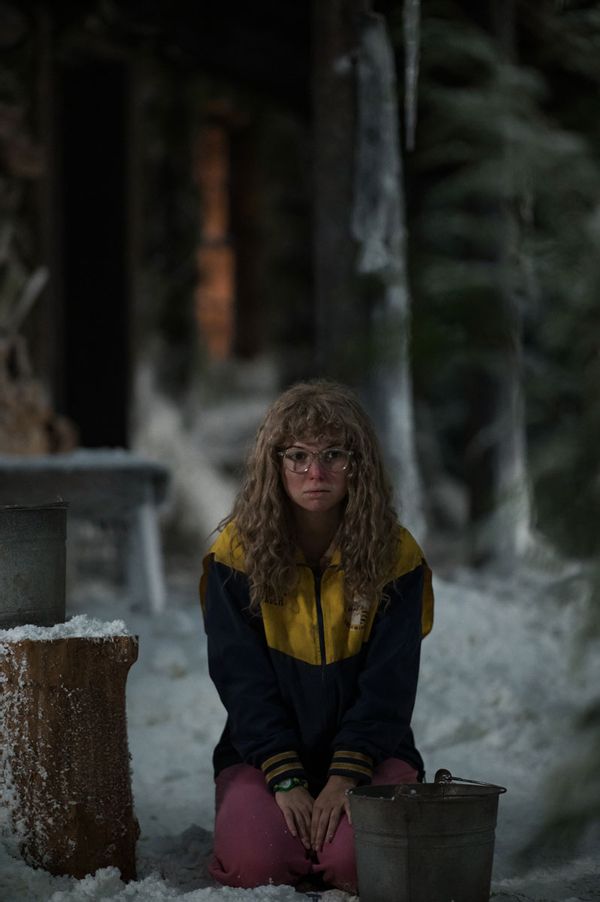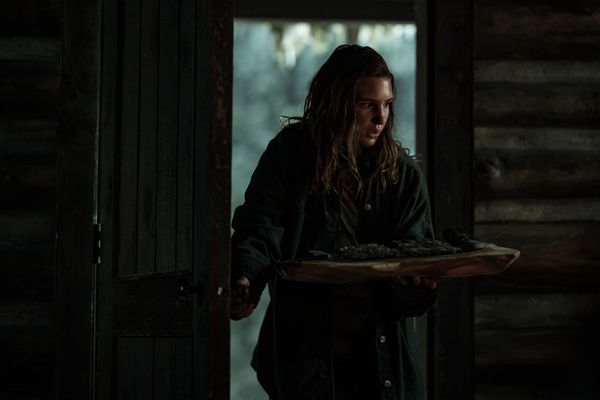
It was hoped to be a big hit, finally breaking through with its catchy chorus and upbeat, jangling groove. And it was, reaching No. 7 on the US Billboard Chart and peaking even higher worldwide, including at No. 4 on the UK Singles Chart. It was "Cornflake Girl" by Tori Amos, and you may have heard it again recently, cutting through the snow, ice and blood on Showtime's "Yellowjackets."
The first single on "Under the Pink," Amos' second, solo studio album, "Cornflake Girl" is the perfect song for the return of the beloved show, closing the first episode of its second season. Thematically and lyrically, it fits. So does Amos. The girls of Wiskayok would likely know the 1994 album and the flame-haired, former piano prodigy. But "Cornflake Girl" and "Under the Pink" make more sense for "Yellowjackets" than even book club did for poor Jeff.
Because like the cannibal girls, the song and its singer/songwriter have been terribly misunderstood.
It's been nearly 30-years since the song's release, but Amos is still described in article after article, review after review, as "the cornflake girl." And she wasn't. The very first lyric of the song is that the speaker "Never was" one. But critics tend to gloss over that part. In the song, the narrator doesn't even call herself a "raisin girl," either; she's merely "hanging" with them, as if they're tolerating her. As if she doesn't belong anywhere.
The title came about after Amos' early experiences in the entertainment industry. Trying to make it in music, she landed a commercial for Kellogg's Just Right cereal. That's correct, cornflakes. In the 1985 commercial, Amos, with short hair not yet her trademark cherry pop red, sings with a bespectacled partner and plays a duet with him on a grand piano that looks like a giant cereal box from above.
Amos might have hawked cornflakes to make ends meet — we all have to find our ways to survive, especially in the arts — but she wasn't one of those girls. She wasn't a mean girl, either. Young girls, their cruelties and girlhood (and its cruelties) make up a big part of Amos' early work, including 1992's "Little Earthquakes," her introspective, breakthrough album after the band she fronted, Y Kant Tori Read, released one 1989 album. (Yes, that's her on the cover with a sword, and yes the synthpop album has its moments, though not nearly as intense and personal as Amos' solo work.)
Even the cover of "Under the Pink" seems like an otherworldly prediction of "Yellowjackets."
The betrayal of a female friend hurts more than a man, Amos said, talking about "Cornflake Girl" in 1994. In that interview, and in others, Amos also mentioned Alice Walker's novel "Possessing the Secret of Joy," and female genital mutilation as influencing the song.
Women betraying other women, the wounding of their bodies? The "Yellowjackets" bells are going off. But we can also draw a line from the show to the whole album. Amos has talked about how the idea of coming to terms with the violence within oneself, especially as a woman, was a big part of "Under the Pink." "I want to kill this waitress," she growls in another song.

Being one of the first still often means being misunderstood, overlooked and mocked.
Even the cover of "Under the Pink" seems like an otherworldly prediction of "Yellowjackets." Amos stands on a white, desolate world, jagged ice all around her. She's underdressed in a thin white shift, barefoot. This season of the Showtime show plunges us into winter, a harsh, unforgiving Canadian winter the girls are unprepared for in their ragged spring clothes.

Critics come and go, but Amos is still here.
Being one of the first still often means being misunderstood, overlooked and mocked. As The Guardian wrote in 2017, "Amos didn't always make sense to her critics … her genius was frequently couched in misogynistic backhanders by the music press: she was a 'weird chick' in Q; a 'Grade-A, class-one, turbo-driven fruitcake' in the NME. 'And they weren't all men, those critics,' Amos points out wryly."
To love Amos' work, as I have since I was younger than the Yellowjackets, is to be labeled too. Weird girl, flighty, freak. A male acquaintance who considers himself a punk fan said he had lost respect for me when he found out I was taking my young son to see Amos in concert last year. But there's nothing more punk, ballsy or badass than singing about your own survival after sexual violence. And one thing Amos helped instill in me when I was too young to drive? Not caring what anyone, especially a man, thinks. "How's that thought for you?"
As "Yellowjackets" deals so much with grown women still processing (or not) the violent trauma of their youth, who better to be the voice of the show than a misunderstood woman still performing intense, high-energy shows at almost 60? Critics come and go, but Amos is still here. The women of "Yellowjackets" have struggled in all the ways of trauma — bad relationships, substance abuse, money and career troubles — but there's still time for them, for all who survive. Is it finally Amos' time too?

"Yellowjackets" has the chance not only to remind us how good Amos was and always has been, but to reconsider how recent history treated women artists.
Interestingly, this season's "Yellowjackets" music supervisor is Nora Felder who, when she worked on Netflix's "Stranger Things," help Kate Bush and her powerhouse "Running Up That Hill (A Deal with God)" fly up the charts, introducing the musician to a new audience. Bush was the artist Amos was most frequently compared to when Amos first came on the scene (two women, playing the piano) but the British artist never quite faced the same critical vehemence as Amos. Nor did Linda Ronstadt, who received the "Stranger Things" effect when her song "Long, Long Time" was used on HBO's "The Last of Us."
"Yellowjackets"— which will use another Amos song later on — has the chance not only to remind us how good Amos was and always has been, but to reconsider how recent history treated women artists. So much of what passed for fine in my childhood has been revealed to be actually quite awful, the misogynistic treatment of many women, from Britney Spears to Janet Jackson to Pamela Anderson. Maybe Amos fits in there too. A theory my brilliant female friend and I have about "Yellowjackets" is that the plane crash dropped the girls into an alternative world, maybe one where ghosts are real. Could it also be a world where we don't have to go through this sexist crap again?
In "Cornflake Girl," Amos sings "She knows what's going on." There are a lot of she's in the episode, timed to the song: Callie sifting through ashes; Shauna, about to do something she might not be able to come back from; Lottie with her message from Travis; maybe even Jackie — that she somehow knows what Shauna is going to do at the end of the episode. That she's OK with it, giving her blessings from the "other side."
That's where "she's gone" after all, in the song: to that other side. We can't help but follow.







